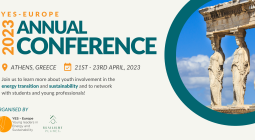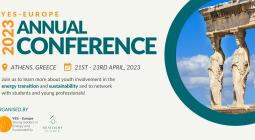The man who came from nowhere to run Athens
Haris Doukas wasn’t a politician. Could he provide a model for other left-wingers wanting to disrupt the status quo?
ATHENS ― Haris Doukas has achieved the impossible.
Scarcely a few months ago, if the 44-year-old mechanical engineer strolled down the streets of Athens, nobody recognized him. Now he’s mayor.
It’s a remarkable achievement for someone who had little political experience, few ties to the center-left Pasok party, and whose center-right rival ― whom even Doukas himself called a “born winner” ― dominated since 2019.
“When Pasok made the proposal to run, it seemed like a crazy scenario,” Doukas said. “But I couldn’t say no.”
Even before taking office on Jan. 1 he came under fire from his political opponents and supporters of the mayor he replaced, Kostas Bakoyannis, who just happens to be the nephew of Greece’s center-right prime minister. Central government, in what his friends consider acts of revenge, has denigrated him and stripped him of powers.
Yet Doukas is defiant, and his path to power could provide a model for other outsiders wanting to change the status quo.
Concealed discontent
Doukas was up against it from the start. Apart from being such an unknown, and having a limited amount of time to make people recognize him, he had to run his campaign in the middle of summer when many Athenians are out of town ― often on one of Greece’s islands, many hours from the mainland. Doukas had to convince people to run with him and bring them back to the capital to sign the necessary paperwork.
“I was certain from the beginning that I was the only one who could beat Bakoyannis,” he said. “I saw that there was a concealed discontent prevailing in Athens and there was a born winner. But history is full of born winners who were eventually defeated.”
Doukas, also a professor of energy policy, ran with the backing of Pasok but received the support of all the left-wing parties in a runoff vote.
He garnered the endorsement of prominent individuals from fields including sciences, arts, and ecology, and built a policy program that he said was “beyond political parties and colors.”
Doukas was elected mainly on an ecological agenda with a promise to lower temperatures in Athens by increasing the amount of green space and reducing energy poverty.
‘Hostile action’
Since taking office the relationship with Greece’s national government, run by center-right New Democracy, has been acrimonious. Supporters are already worried he won’t able to implement his ideas.
National opposition parties have repeatedly described the way central government has behaved toward him as “vengeful” ― not just to Doukas but also to the Athens citizens who voted for him.
Days before officially taking over, the government stripped City Hall of powers and funds for urban projects and transferred oversight to central government.
Doukas called the move a “disparaging, almost hostile action towards municipal authorities” and vowed to pursue the case legally.
“This is a major blow and setback for the municipality,” he said. “I remember the country’s international creditors during the financial crisis, arguing that too much money is concentrated in too few people, whereas decentralization would create more accountability and control.
“Instead of that, we are taking steps further and further back.”
‘Duke of Palestine’
There have been other setbacks. A pledge to reopen a central avenue to traffic that was closed during the Covid pandemic has been blocked by the government, claiming it may be the site of antiquities.
He was lambasted on social media and by members of parliament when his first appearance at a New Year’s Eve concert in the city’s main Syntagma square was accompanied by people in the audience waving dozens of Palestinian flags.
“Duke of Palestine” trended on social media.
The mayor’s colleagues had to clarify that a young girl that joined him on stage was simply dark haired and not Palestinian.
“It seems that whatever I do is immediately distorted,” he said. “It seems like an [unofficial line is distributed] after each of my interventions that creates a distorted news story. We will clash when we feel that they are putting obstacles in our way.”
‘I’m the mayor now’
He has a long to-do list to transform the Greek capital. According to a European Commission survey of 84 cities, the people of Athens are among the least satisfied. It was voted the worst city for digital nomads.
“Athens cannot be a city only for tourists, it cannot be an endless mall,” he said. “But I know these are [just] slogans and I’m the mayor now.”
He ordered a study to find out the mix of tourists and residents sustainable for each neighborhood, pledging a new city tax based on the results. He also called on the government to abolish the so-called golden visa scheme, which grants residence permits for investors in real estate.
He established an energy-poverty alleviation office, aiming to identify vulnerable households and use renewable energy for cheaper electricity.
The Doukas model
Figures from the left and center-left are now wondering how to bring the “Doukas model” to the wider political scene.
Prime Minister Kyriakos Mitsotakis secured a second term in July and, nationally, opposition to him has weakened even more since then. Polls suggest that combined support for the three biggest rival parties do not add up to ruling New Democracy’s support.
But Doukas is positive. “My victory shows that you can, without having systems behind you and the heavy weapons of politics, create rifts, and eventually victories change the status quo.”
As Greece’s center-left waits impatiently for someone who can unite their decimated political parties at the national level, some ponder whether Doukas could be just their man. They point to the example of Antonio Costa, who was elected Portugal’s prime minister after serving as Lisbon’s mayor.
“A few months ago, I didn’t know I would be a candidate,” Doukas said. “I didn’t imagine I would be mayor. So no one knows what the future holds.”
Cover photo: Haris Doukas, Mayor of Athens | Angelos Tzortzinis/AFP via Getty Images





